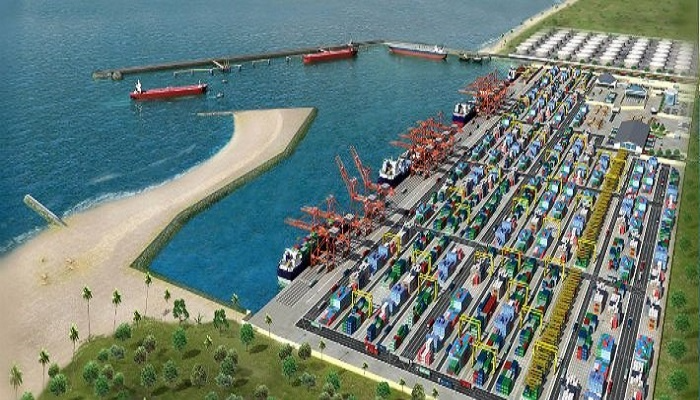The Belt and Road Initiative (BRI) which was unveiled in 2013 by Chinese President Xi Jinping is set to mark its 10th-year anniversary in Beijing, the Chinese capital this October 2023, with tremendous achievements in investment in infrastructure development by Chinese firms in Nigeria and across the world over the years.
China’s proposal to build a silk road economic belt and 21st century maritime silk road in collaboration with related countries was motivated by the desire of President Xi Jinping for interconnectivity and shared prosperity for a greater future.
Since Nigeria and China established diplomatic relations in February 1971, both sides have maintained cordial relations as Nigeria currently is China’s third largest trading partner in Africa and China being Nigeria’s largest source of imports. More over, the BRI quickly fits into the Nigerian agenda to address its infrastructure deficit.
There are high expectations in Beijing about the Nigerian delegation to the BRI anniversary especially as there is increasing hope that the Nigerian President Bola Tinubu could lead the delegation. This development is contingent on the historically robust diplomatic relations between Nigeria and China, which under the BRI platform has led to massive infrastructure development in Nigeria and the mutual benefits for both countries.
One of the major infrastructure facilities that formed the basis of the strong ties between both countries is the completion of the Lekki Deep Sea Port(LDSP) constructed by the China Harbour Engineering Company (CHEC) a part of the China Communications and Construction Company Group Limited(CCCC) with headquarters in Beijing.
This infrastructure situated in Lagos, the business nerve centre of Nigeria, experts said has changed the fortunes of Nigeria and positioned it on the path to acquiring the status of West Africa’s trading and maritime hub and boosted its potential to play a leading role in the African Continental Free Trade Areement (ACFTA).
At the CCCC headquarters in Beijing, the Assistant General Manager of Industrial Investment Department of the CHEC, Gong Xin, told LEADERSHIP in an interview that China Development Bank provided most of the funding for the project.
He also noted that the project cost about $1.04billion, adding that CHEC had 52% equity, Tolaram a Singaporean firm, the Nigerian Ports Authority and the Lagos state government share the remaining equity stakes.
The completion of phase 1 of the Lekki Deep Sea Port, located 65km east of the Lagos Free Trade Zone has delighted many Nigerians as thousands of jobs are expected to be created by the project, with a huge revenue generation running into billions of dollars for both the Nigerian, the Lagos State Government and relevant agencies.
The project, which currently covers 50 of the 90 hectares has a phase 1 depth of 16.5m and a projected 19m phase 2 depth. It has been named the deepest port in West Africa.
The operationalisation of the port, which recently acquired the status of a transhipment hub, will be a transformative experience for Nigeria and neighbouring countries as it will reduce cargo transportation time, a feat achieved through vibrant cooperation between Nigeria and China with massive Chinese loans on concessionary basis.
The Port was completed in 27 months and it has a 45 years concessionary period with the build, own, operate, and transfer mode of operation. This means that the Chinese will fully hand over the operation and total ownership after 45 years, which according to Xin is part of what he called the Greenland investment.
According to Xin, while it is not easy at the moment to quantify the value of the return on investment of the Lekki Port, experts have estimated that the return on investment could be over 200 times the cost of the project.
Xin said further that CHEC has executed over 20 projects in Nigeria since the company began operation in the country in 1994, which included the recently completed Keffi-Abuja-Akwanga-Lafia. He said however, that the LDSP remains the biggest project China Harbour has undertaken in the last 10 years in Nigeria.
It is hoped that as the Chinese deepen investment in Nigeria more Nigerians will benefit from empowerment through vocational skills, technical competence for the indigenous population and technology transfer.











